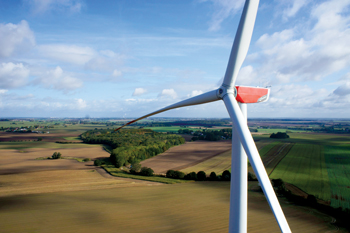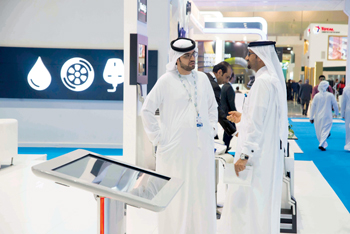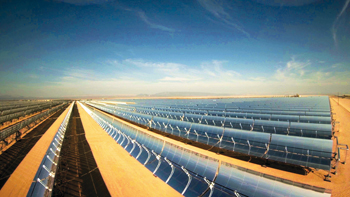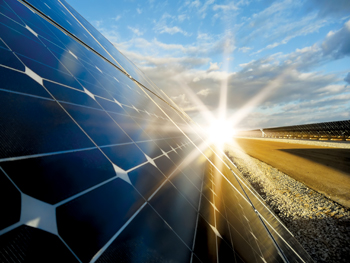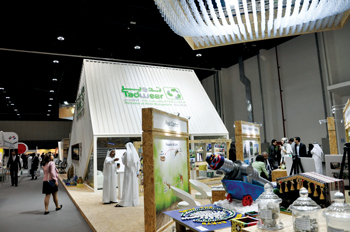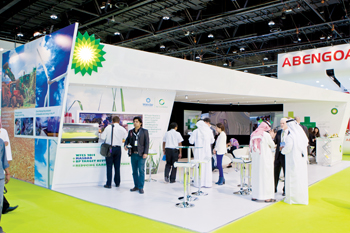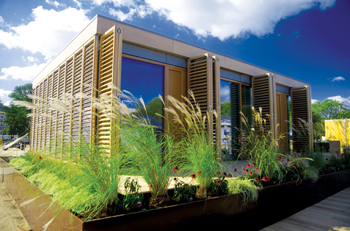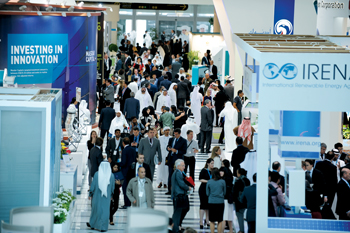
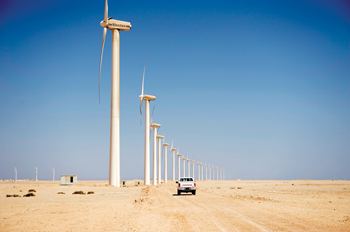 A wind energy farm in Egypt
A wind energy farm in Egypt
Gypt’S renewables energy sector presents a potential opportunity of more than $10 billion for private sector financing over the next five years, experts say.
As Egypt’s installed power capacity is set to nearly double from 31 gigawatts in 2013 to 60 gigawatts in 2020, renewables will play a key role and present an opportunity of $13 billion in investment and development, according to Frost & Sullivan.
In particular, Egypt plans to reach 20 per cent of its total power for a total of 11.32 gigawatts from renewables by 2020, across wind, photovoltaic, concentrated solar power, and hydroelectric projects, according to a report by the Regional Centre for Renewable Energy and Energy Efficiency.
“There are more than 4,000 megawatts in renewable energy projects currently under development in Egypt, split between wind, and solar, procured under a newly established Feed-in-Tariff regime and competitive tenders. There will be strong medium to short-term growth, but to date it has been a slow process due to some volatility and clarification regarding the government regulatory frameworks,” says Bakr Abdel-Wahab, managing director of Infrastructure Private Equity at EFG Hermes, one of the Arab World’s largest banks.
Accordingly, the World Future Energy Summit (WFES) 2016, hosted by Masdar and part of Abu Dhabi Sustainability Week, has added to its already extensive programming to allow for a country-specific focus: Egypt Energy Forum.
The event will be a platform to learn about the latest developments in the power, water, gas, solar, wind, and waste management sectors of the Arab world’s largest economy, while enabling attendees to hear how the country’s leaders articulate the ten-year vision for the nation.
“There are many regional conferences on renewables, but the World Future Energy Summit has the reputation for bringing in high-level developers and investors, providing a forum to give feedback to governments,” adds Abdel-Wahab, who will be presenting at the Egypt Energy Forum and World Future Energy Summit.
Among the key issues to be discussed are practical measures envisaged to accelerate renewable energy adoption across the country, including a proposed feed-in-tariff programme, and the rollout of solar rooftops.
There will also be discussion around the status of key public-private-partnership (PPP) programs, and how they will be accelerated in 2016, such as the New Cairo Wastewater Treatment Plan, the Helwan Wastewater Treatment Plan, Recycling Solid Waste project, and Sharm El Sheikh sea desalination plant.
Finally, developers, operators, manufacturers, and contractors will hear from experts in the finance sector about its appetite for Egyptian project finance. The new forum will draw top speakers, joining forces with those from the country’s private sector energy, investment, and finance industries to form an unparalleled global platform on the country’s energy future.








































































